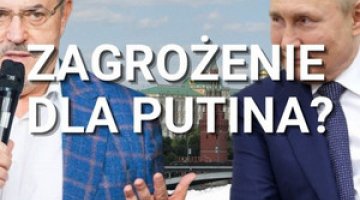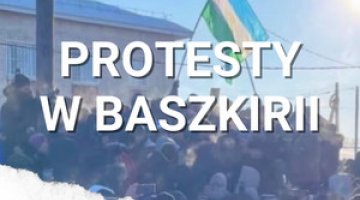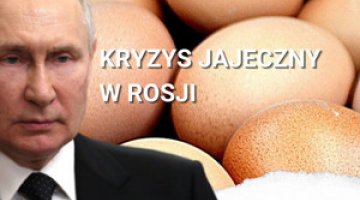Elections strengthen Putin and weaken the opposition
Vladimir Putin won in the first round of presidential elections held on 4 March, winning 63.6% of the votes, according to the Central Electoral Commission. Despite the large scale of electoral violations, Putin's victory has not been disputed either by international opinion or election observers (both foreign and Russian), nor by most of the so-called 'licensed' opposition.Putin's overwhelming victory has in the short term weakened the potential of the protest movement, which has been growing in Russia in recent months. There are many indications that the protesters, whom had hitherto been united by their opposition to Putin’s planned return to the Kremlin, have lost their motivation since the election, and are succumbing to growing divisions. Many of the opponents to the government, especially those with a more moderate attitude, are withdrawing from active operation. The initiative is being taken by more radical activists who are determined to continue the protests, even without the authorities’ sanction. Putin may take advantage of this radical attitude by the opposition to crack down after taking office. However, in the medium term, Putin's position may yet be further weakened, both under the influence of negative economic factors and by the attitudes of the most active part of society (including business and intellectual elites), who see Putin as an politician out of time, unsuited to the challenges Russia is facing.
Undisputed victory in the first round
As announced by the Central Electoral Commission, Vladimir Putin won in the first round of elections with 63.6% support, on a turnout of 65.3%. He had a clear lead over the other candidates: the Communist leader Gennady Zyuganov (17.2%), the billionaire Mikhail Prokhorov (8%), the nationalist Vladimir Zhirinovsky (6.2%) and the left-winger Sergei Mironov (3.9%).
Putin's victory was recognised by international observers. As is usual, the election observers from the CIS countries also issued a positive assessment. Furthermore, the ODIHR / OSCE and the Parliamentary Assembly of the Council of Europe acknowledged that Putin's victory in the first round was undeniable, while noting that violations had been committed. Even the independent monitoring organisation Golos, which counted the votes in cooperation with other public observers, concluded that Putin had indeed won over 50% of the vote.
Putin's legitimacy has not been undermined by his partners in the international arena. He was congratulated on his victory by various international partners, including the leaders of the CIS countries (except Turkmenistan), China, Japan, and by Western politicians (from Germany and France among others). Chancellor Angela Merkel stressed that Germany intends to continue its strategic partnership with Russia. There was a more muted reaction from the EU: Lady Catherine Ashton pledged to co-operate with the president-elect, but noted the electoral violations and called for political reforms. The US State Department congratulated the Russian public for its active attitude towards the elections, and urged the government in Moscow to investigate the electoral violations, while at the same time acknowledging Putin's unquestionable victory and offering pragmatic cooperation with the re-elected president.
Electoral fraud: an assessment of the scale
The presidential elections were accompanied by a large number of reports of violations and falsification. The independent monitoring was led by several NGOs (the Golos group, the League of Voters, RosVybory and others), and a total of around 300,000 people were involved in the monitoring. The number of violations recorded by the observers stands at several thousand. The government and the Central Electoral Commission have only acknowledged a few isolated cases, stressing that the unprecedented transparency of the voting process was guaranteed by the cameras which had been set up in almost all the polling stations.
The most common types of violation discovered by the observers were the so-called 'carousels' (voting on multiple occasions by the same people, each having an ‘absentee ballot’ - a certificate to vote away from home, or other documents supposedly issued to employees in companies with a continuous production cycle; groups of people with such certificates were transported in an orderly manner from one polling station to another); numerous reports of ballot stuffing (this practice was recorded by cameras in Dagestan and Tatarstan, among other places); pressure on independent observers (their removal from polling stations; beatings; intimidation; the activities of the independent institution Transparent Elections, who had been monitoring the voting process, were blocked by Interior Ministry personnel). In addition to the violations recorded directly on voting day, observers emphasised the inequality of conditions for conducting the election campaign; Putin was heavily favoured by the media, local governments and electoral commissions, and some candidates were prevented from standing.
In assessing the scale of violations, independent experts have shown that Putin's results depended on the turnout; in constituencies where turnout was very high, there were disproportionately high results for Putin. This is best illustrated by the results in the North Caucasus, where both the turnout and the support for Putin hovered around 90%.
The evolution of the anti-Putin protest
The course and results of the elections, and the post-election opposition rallies, show the evolution that the anti-Putin movement which has taken shape in recent months has undergone. In the pre-election period, various groups of government opponents (the middle class, nationalist and leftist circles, etc.) united in opposition to plans to return Vladimir Putin to the Kremlin, and mobilised to prepare for the monitoring of elections and the organisation of protest action. But since the elections, we may observe that this energy is running out, and divisions among the protesters are growing, as the opposition leaders themselves admit. This results from several factors: the decisive victory for Putin, whose victory is uncontested by either observers or international opinion; the long-term perspective of the current president-elect's government, and the ineffectiveness of the opposition's activities so far.
As the protest rallies on 5 March showed, especially the main opposition rally in Moscow, motivation to take further action has clearly dropped off among a large part of the government's opponents, especially those with a more moderate attitude. The meeting, which was billed as the high point of the civil protest, turned out to be several times smaller than the previous ones (about 15,000 participants gathered), and proceeded in a clearly different atmosphere than previous opposition rallies; many charismatic figures were absent, and among those who were present and the crowd itself, a feeling of defeatism prevailed. Representatives from the so-called 'licensed' opposition (A Just Russia, the Communists) also failed to appear at the rally, and this attitude shows that they have withdrawn from the protest activity.
Motivation to continue the protests remains among the more radical opposition activists who have been calling for action outside the law. This stance has met with a sharp reaction from the law enforcement agencies. At the end of a rally on 5 March, police forcibly removed a few hundred people from the Pushkin square; this group was led by Sergei Udaltsov, a leftist activist who attempted to start a permanent occupation of the area. About 300 people were detained, among them Udaltsov himself, the blogger Alexei Navalny, and the democratic activist Ilya Yashin (the detainees were released after a few hours). The security forces in the vicinity of the Kremlin also thwarted the opposition's 'Ring around the Kremlin' action, an attempt to surround the Kremlin with a human chain, as well as an attempt by the illegal radical National Bolshevik group to protest next to the headquarters of the Federal Security Service. An illegal opposition assembly of several thousand in St. Petersburg was also dispersed, and about 300 of its participants were detained. Pro-government television assessed the opposition's activity as a provocation which had been planned long before the presidential elections. Another opposition demonstration is scheduled in Moscow for 10 March.
The ruling class and the elections: the risk of division postponed?
The course and outcome of the elections may postpone the risk that the divisions which have arisen within the elite over the last year will get any deeper. Putin's supporters see him returning to the Kremlin strengthened by his victory. His mainstay remains the influential politicians and businessmen who make up the narrow ruling elite (including the Deputy Prime Minister Igor Sechin, multi-billionaires from the oil and gas industries such as Gennady Timchenko, the brothers Rotenberg, and the banker and media mogul Yuri Kovalchuk). A large part of the administration is consolidating itself around Putin, as they have benefited from the system he has created, and are interested in preserving it; this group includes much of the bureaucracy, the regional elites, party activists, and businesses which benefit from their links with the government.
On the other hand, among the more liberally-minded people who are close to the government – some of the intellectual and business elites, but also a certain part of the state administration – a certain ferment has been observed for more than a year now. This results from the conviction that Putin is an anachronistic type of leader, and the vision of the state he offers is inadequate to the challenges which Russia is facing. This belief has been expressed both by prominent experts affiliated with business who provide expert backup for the government (such as the head of the INSOR think-tank Igor Jurgens, and the head of the Centre for Strategic Studies, Mikhail Dmitriev), and by close associates of Putin (including the former Finance Minister Aleksei Kudrin, the head of Sberbank German Gref, and the head of the Rosnano state corporation Anatoly Chubais). This group has so far limited itself to discussions, and has been involved in opposition initiatives to only a limited extent (only Kudrin participated in the protest rallies). However, they remain critical of Putin's return to power, and believe that his position will inevitably weaken over the next few years. The comments made by this group suggest that they are placing their hopes on Mikhail Prokhorov in the longer term. They see Prokhorov as having consciously played out the role (assigned him by the Kremlin) of a mere extra in the recent presidential elections. Nevertheless, they believe he has the potential to consolidate the opponents of the government, and that in the future he will try to play a more independent role in politics.
Forecast
Despite numerous reports of electoral fraud, Vladimir Putin's legitimacy has not been challenged, either by international opinion or by independent Russian observers. However, there is much to suggest that after returning to the Kremlin, Putin will want to demonstrate that he remains the undisputed leader, and will take measures to pacify the mood of protest. As a pretext for cracking down after taking office, Putin could exploit the radical actions of part of the opposition, which the pro-Kremlin media is now presenting as a provocation.
Meanwhile, the government's opponents are clearly exhausting their pre-electoral formula for co-operation; the divisions among them – that hitherto had been levelled out by their common goal, protesting against Putin's return to the Kremlin – are now deepening. In the coming months, the dynamics and scale of the protests will probably decline. But in the long run, the social capital which was accumulated in the pre-election period will not disappear. It is likely to take on other forms, such as commitment to party-based activity (if the law to facilitate the registration of political parties is passed), and work on concepts for developing Russia which will stand as alternatives to Putin's. The potential for discontent with his policy persists, and could be reactivated in the case of rising economic hardship (with the increase in fuel prices and the rises in municipal fees planned for July this year as examples), or the failure of the budget to meet the inflated promises that Putin made during the campaign.
Official results of the election:
Vladimir Putin - 63.6% of the vote
Gennady Zyuganov - 17.2%
Mikhail Prokhorov - 8%
Vladimir Zhirinovsky - 6.2%
Sergey Mironov - 3.9%
Turnout - 65.3%
Data from the Central Election Commission
Regions in which Vladimir Putin achieved the best results
Chechnya: 99.7% of the vote, 99.5% turnout
Ingushetia: 84.2% of the vote, turnout 92.1%
Tatarstan: 84% of the vote, turnout 83%
Regions in which Vladimir Putin achieved the worst results
Moscow: 46% of the vote, turnout 49% (19.8% for Prokhorov)
Kaliningrad oblast: 52.6% of the vote, turnout 59.3%.
St. Petersburg: 58.7% of the vote, turnout 50.4% (15.5% for Mikhail Prokhorov)
United Kingdom (polling station at Russian Embassy): 22% of the vote (58% for Prokhorov)




